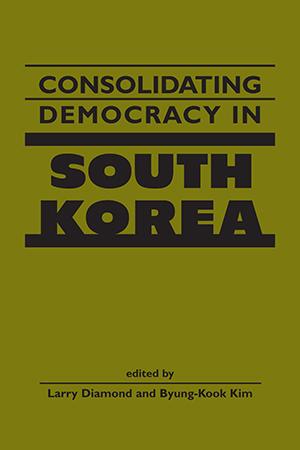
- 2000/254 pages
Consolidating Democracy in South Korea
Since its inception in 1987, Korean democracy has been an arena of continual drama and baffling contradictions: periodic waves of societal mobilization and disenchantment; initial continuity in political leadership, followed by the successive election to the presidency of two former opposition leaders and the arrest of two former heads of state; a constant stream of party renamings and realignments; an extended period of economic success and then a breathtaking economic collapse; and a persistent quest for political reform in a political culture focused not on institutions, but on power and personal relationships.
This book sheds light on the dilemmas, tensions, and contradictions arising from democratic consolidation in Korea. The authors explore the turbulent features of Korean democracy in its first decade, assess the progress that has been made, and identify the key social, cultural, and political obstacles to effective and stable democratic governance.







